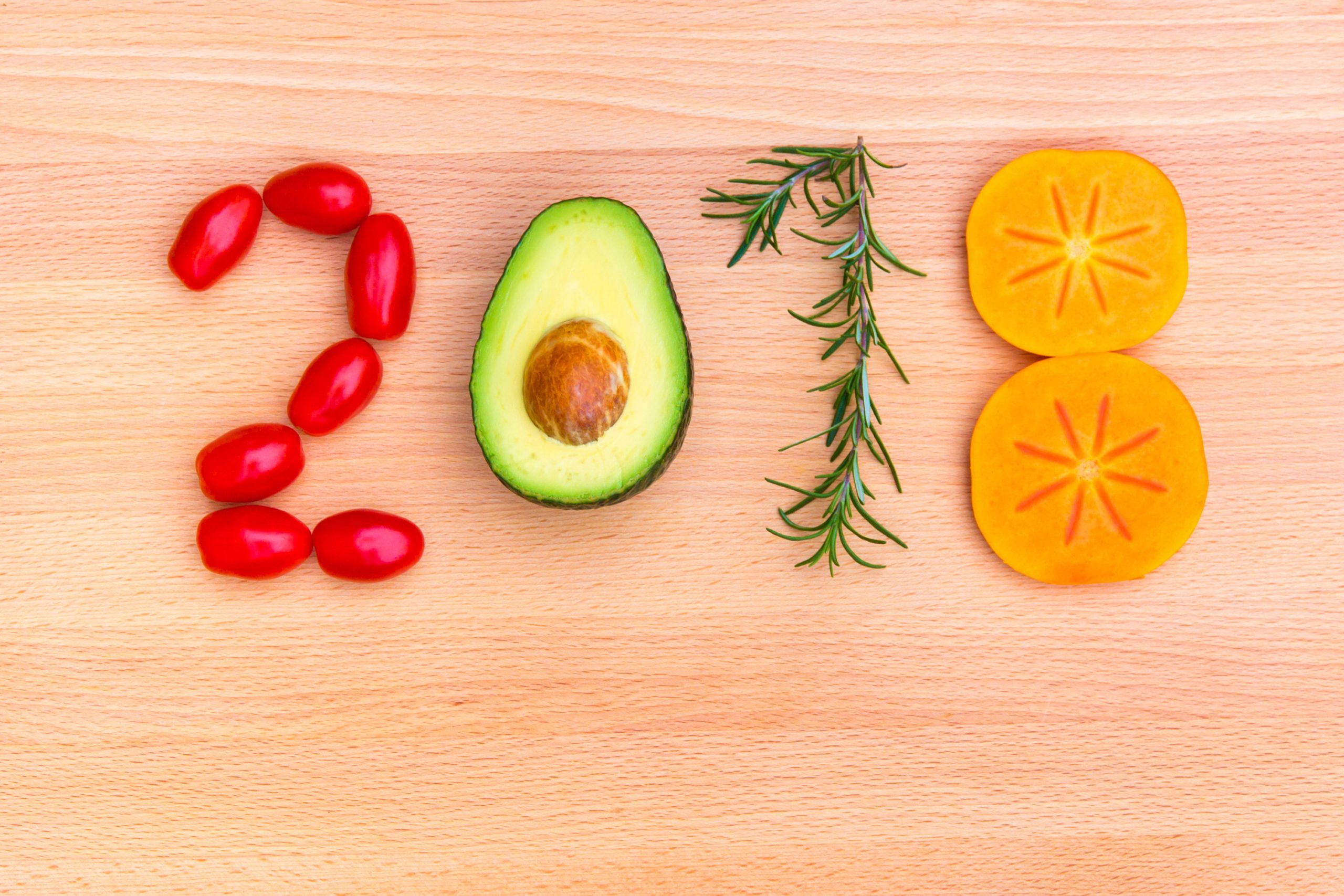When it comes to technology in the first week of January, you might be thinking wearable fitness trackers and meal replacements. But there is a whole host of startups with technology that can also help with resolutions skewed toward agriculture and food. Even if you don’t have a farm or a food business yourself, spreading the word about these technologies to the stores and restaurants in your world can help them grow faster.
Resolution 1: Reduce Food Waste
Buying only what you need and eating everything you buy are the most common recommendations for eliminating individual food waste. These acts are worth the effort, but there are also startups and new technologies consumers can use to eliminate food waste in broader ways.
Several startups have developed coatings and additions to fresh fruit to increase shelf life and avoid waste. Apeel Sciences uses agricultural byproducts and waste such as orange peels in its produce coating formula, which can be applied to fresh produce to extend its shelf life. Pace International also makes coatings and other storage treatments to extend the life of stored produce.
Hazel Technologies is developing technology to increase the shelf life of fruit. It has two current products — FruitBrite and BerryBrite — are small packets that are inserted into fruit packaging.
If you’re still working on eliminating waste at home, Obeo, based in Dublin, has created what it describes as a mess-free and convenient way to recycle food waste using an all-in-one compostable food waste box that collects vegetable peelings, food scraps, and other discarded edibles for repurposing.
A few consumer packaged goods companies are sourcing their products from reclaimed waste in the value chain. These companies repurpose produce waste from cut-fruit operations, rescue spent grain from breweries, and more. Examples include Rise Products, which makes flours from soy milk and tofu byproducts; fruit and vegetable waste juicer Misfit Juicery; and spent grain granola bar maker Regrained.
Spoiler Alert and Full Harvest help institutions find new users for their excess food, while companies like Industrial/Organic, KDC Ag, and Re-Nuble turn grocery store waste into usable fuel and agricultural inputs.
Resolution 2: Use Less Water
With a little knowledge and research, consumers can make an impact on water usage — more than just turning off the tap while brushing their teeth. Supporting agricultural methods that dramatically decrease water use can make a big difference in the water footprint of a meal.
One way to reduce the water usage in the food you already eat is to support indoor farming. Novel farming systems are designed to drastically decrease the water required to grow crops like leafy greens and tomatoes. Hydroponic operations use less than 0.5 gallons of water per pound of greens, or around 3% of the water required for conventional lettuce, according to research from Agrilyst. AeroFarms, Plenty, Freshbox Farms, Bowery Farming and Green Collar Foods are all examples of hydroponic growers, but there are hundreds more all over the country.
Resolution 3: Use Less Plastic
Food packaging isn’t talked about enough in agrifood tech. If eliminating plastic waste is on your list of resolutions, a handful of startups are working to change how plastic is used in our packaging.
TIPA Sustainable Packaging is an Israeli startup manufacturing bio-based, fully compostable packaging for the food and fashion industries. It compares its product to an orange peel, and says it will decompose within 180 days in compost conditions, compared to hundreds of years for regular plastic.
TIPA also claims that its bio-plastic emulates the properties of standard plastic in terms of its strength, shelf life and durability, transparency, sealing strength, printability, flexibility, and applicability. The company can create different plastic products for different uses using resin, multi-layer structures, and laminates, according to its website.
Zymergen and Ginkgo Bioworks operate in a scalable niche of industrial manufacturing where they’re trying to replace petroleum and other environmentally-damaging ingredients with a biological alternative to make everyday products like paint, plastic containers, and soap.
Algae also have a role to play in the future of biodegradable bioplastics.
Resolution 4: Support Local Farmers
In 2018, you don’t have to become a farmers market devotee to support local farmers year-round. Online farmers markets create a more direct route from farms to nearby customers, all with the same experience of an online grocer.
Big names in e-grocery such as Fresh Direct and Amazon Fresh are making more of an effort to source locally for their shoppers. But there are startups taking local sourcing that to a whole different level, by partnering exclusively with local farms and embracing the sourcing standards and logistical challenges that goes along with that. Online farmers market operations in the US include San Francisco’s Good Eggs, Los Angeles’s Milk & Eggs, New York’s Our Harvest, San Mateo’s Farmstead, and Rustic Roots.
Resolution 5: Eat Less Sugar
Ok — this one is a traditional resolution, but who couldn’t use a little break from sugar in January? Agrifood tech startups are developing new technologies that may make abstention and self-control a thing of the past.
MycoTechnology is using mushrooms and fungi to remove bitter tastes from food and drinks. Through a system dubbed the MycoZyme process, the startup puts foods through a seven to 21-day sterilization, inoculation, myceliation, and drying process using mushroom and fungi roots. MycoTechnology has applied this process to chocolate, coffee, and green tea to remove the bitterness and therefore, the need to use sugar and sweeteners, the company argues.
Blue Prairie Brands is a startup producing various food ingredients from the chicory plant — a perennial root often roasted and added to coffee or used as a coffee substitute. Blue Prairie uses proprietary agronomy and cultivation methods, select seed varieties and processing methods to produce chicory flour that is not bitter, but still high in fiber.
The company also makes chicory syrup, which according to Blue Prairie, “includes the many benefits found in chicory flour, but can be used as a binder in nutrition bars, a subtle sweetener in dough and a source of fiber for drinks.”
Miraculex is a San Francisco-based ingredient company creating new zero-calorie sweeteners from plants. The company’s first product is a sweetener designed to mimic the flavor of the West African “miracle berry”. The compound that makes the miracle berry sweet, a protein, has been dubbed miraculin. Because the berries are very difficult to grow, process and store, Miraculex is attempting to synthesize miraculin using lettuce.
Israeli sweetener-alternative startup Douxmatok has boosted the amount of sweetness perceived per gram of sugar by binding the sucrose molecules to the mineral silica, a commonly used anti-caking agent that is approved by the FDA and the EU. According to the company, Douxmatok allows food companies to use 40% less sugar in their products while achieving the same level of sweetness, with no aftertaste.
Finally, Slovenia’s Tosla is altering the structure of table sugar to create Sladcore, a sucrose product that tastes 40% sweeter.




